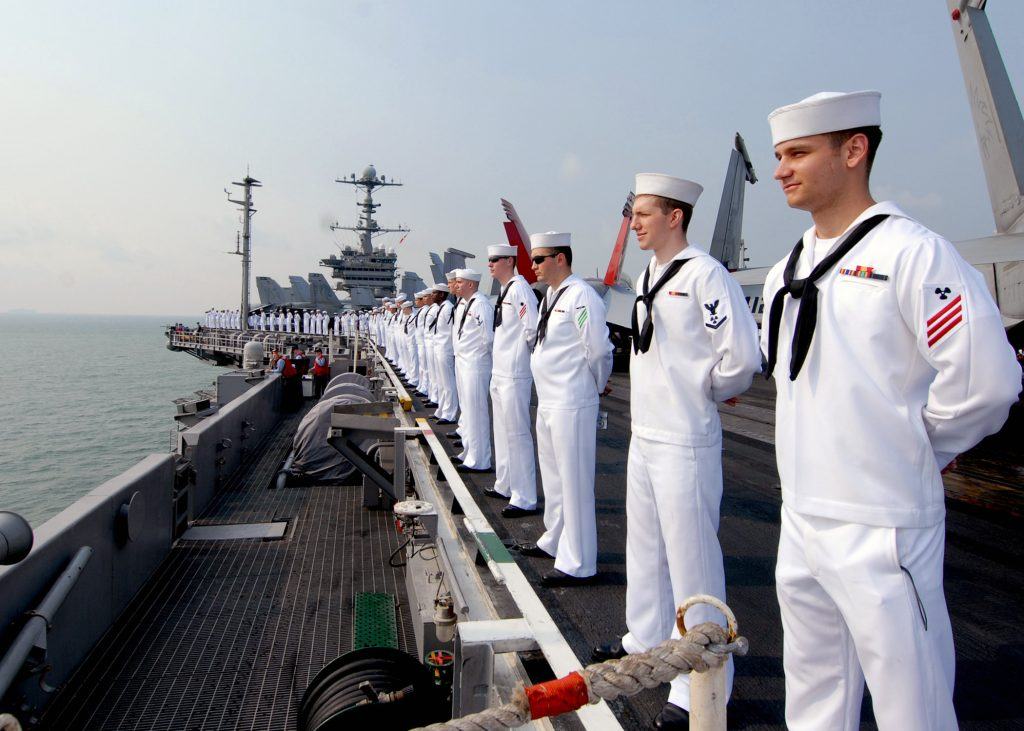US Navy Warned Of March Madness Betting Pools
Posted on: March 17, 2016, 07:37h.
Last updated on: March 17, 2016, 07:39h.

It’s March Madness time again, but, as the 2016 NCAA Basketball Tournament promises to captivate sports fans over the next few weeks, US Navy personnel have been warned to refrain from any form madness during the course of the tournament. Marching, however, will be permitted and possibly even encouraged.
March Madness is traditionally a time when office workers gets together for a good old-fashioned pay-to-play pool, where team names are drawn at random, and the nerdy admin assistant, sexy data input technician, or sweaty mid-level manager who drew the winning team gets to keep the loot.
This is legal in some states and not others, although all most turn a blind eye to a pursuit that is generally perceived as harmless fun.
Disciplinary Action
But military lawyers have emphasized that when it comes to the United States Navy the organization of gambling pools on government property is a violation of the Uniform Code of Military Justice and those involved will face disciplinary action. This also applies to personnel stationed on ships in international waters where they are no gambling laws, they have said.
“As service members, we are prohibited from engaging in most gambling activities, which could include a March Madness office pool,” wrote Lt. Kathy Paradis, a member of the Judge Advocate General’s Corps, offering guidance in a Navy blog this week.
“So now you’re probably thinking, ‘But we always do March Madness brackets at work!’ As long as it doesn’t violate your office policy on the use of government computers, filling out a March Madness bracket and following along to see who wins is not a problem on its own.”
While no member of the US military has ever been penalized for engaging in office-pool gambling, those who choose to do so could potentially be charged with several violations, including: conduct unbecoming of an officer, disobeying a lawful general order, and fraternization. These are offenses punishable by dismissal and a maximum two years’ confinement.
Wider Issue
And while office pools may be relatively harmless, there is a cause for wider concern about problem gambling among military personnel in general. Studies have consistently found that members of the armed forces are at a higher risk of pathological gambling than the general population.
The National Council on Problem Gambling found that around 36,000 active-duty members of the military meet criteria for a gambling problem.
Meanwhile, the Department of Defense operates some 3,000 slot machines at US military bases across the world which rake in estimated annual revenues of $100 million per year, but none of that money goes to supporting soldiers with gambling problems.
Senator Elizabeth Warren (D-Mass.) recently demanded that the Governmental Accountability Office initiate a study into the issue.
Related News Articles
Most Popular
This Pizza & Wings Costs $653 at Allegiant VIP Box in Vegas!
Sphere Threat Prompts Dolan to End Oak View Agreement
MGM Springfield Casino Evacuated Following Weekend Blaze
Atlantic City Casinos Experience Haunting October as Gaming Win Falls 8.5%
Most Commented
-
VEGAS MYTHS RE-BUSTED: Casinos Pump in Extra Oxygen
— November 15, 2024 — 4 Comments -
VEGAS MYTHS RE-BUSTED: The Final Resting Place of Whiskey Pete
— October 25, 2024 — 3 Comments
















No comments yet